Inside the Big Business of Being Liane Moriarty
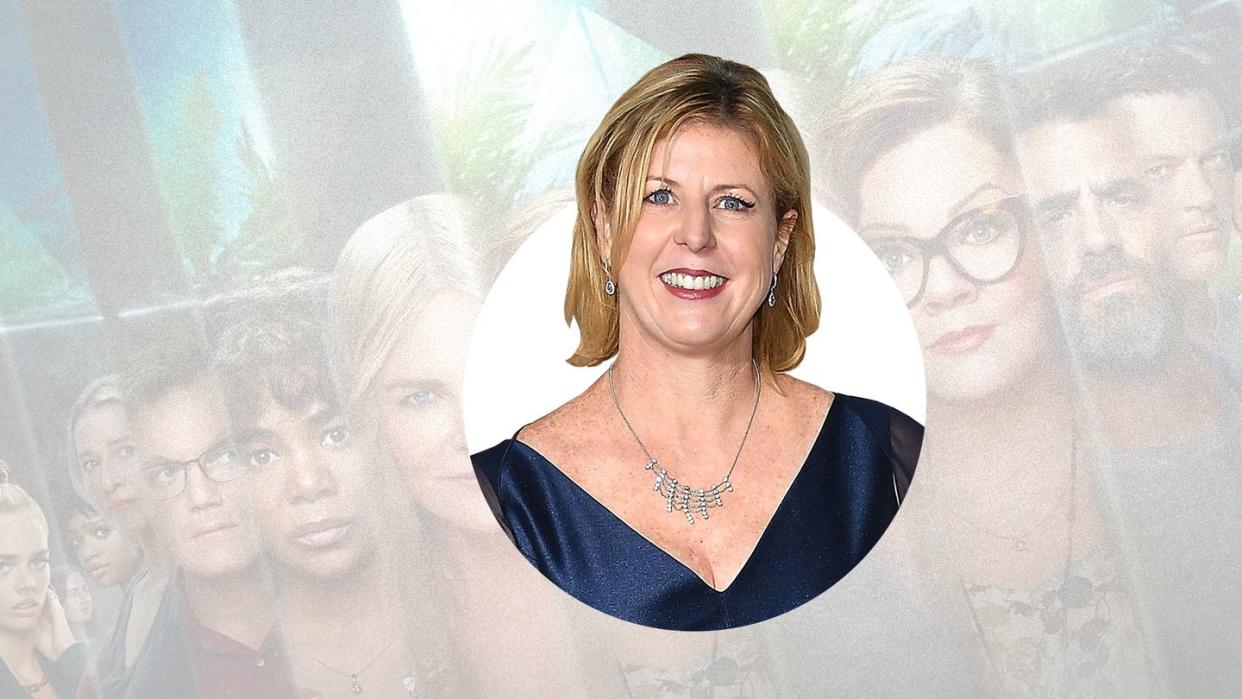
"Hearst Magazines and Yahoo may earn commission or revenue on some items through these links."
Ahead of the Peacock premiere of Apples Never Fall, an adaptation of Liane Moriarte's book of the same name, we're resurfacing this story on the author's journey to becoming prestige TV's golden goose.
In early 2017, HBO’s Big Little Lies felt like the nucleus of American entertainment—a starry television event worthy of the water cooler buzz that Game of Thrones had been hoarding. Depicting wealthy California moms ensnared in a murder investigation, Lies was essentially a well-crafted soap opera with broad appeal. More crucially, it reflected where popular culture was headed. Ushered to the screen by Reese Witherspoon and Nicole Kidman, two Oscar-winning movie stars, the series helped to turn Liane Moriarty, who wrote the bestselling page-turner on which it was based, into the patron saint of domestic intrigue at a time when book adaptations were gaining momentum in Hollywood.
Observing Big Little Lies’ allure, Hulu executives soon chased after the rights to Nine Perfect Strangers, Moriarty’s 2018 novel about a wellness retreat run by a dubious guru. The resulting series, starring Kidman, Melissa McCarthy, and Regina Hall, premiered Aug. 16. Witherspoon and Kidman, both of whom own production companies heavy on female-focused book projects, also acquired Truly Madly Guilty, which Moriarty released in 2016. And more recently, Harry Potter producer David Heyman seized the TV rights for Moriarty’s next book, Apples Never Fall, six months before its publication date.
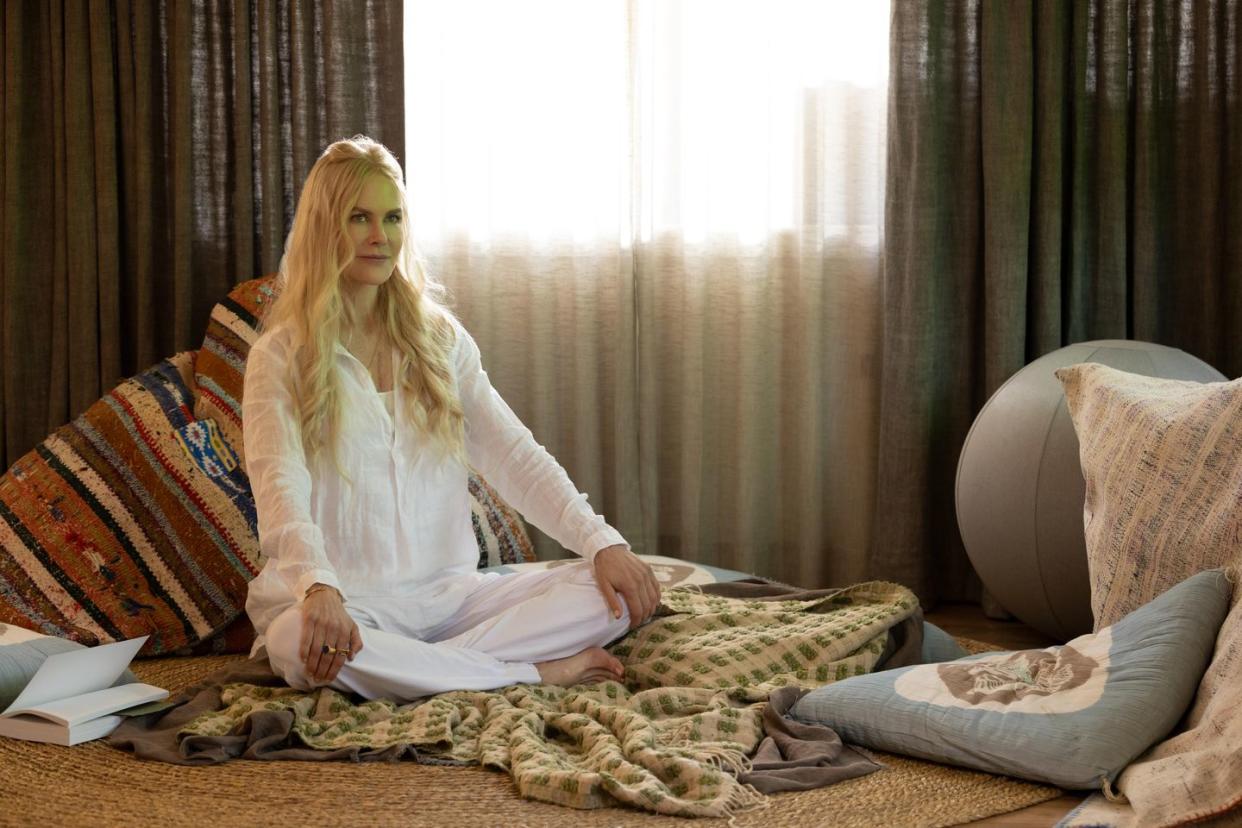
Literary adaptations are nothing new. Neither are luminaries like Moriarty. But Hollywood’s streaming revolution, which coincided with a programming glut known as “peak TV” and a rise in Oprah-style celebrity book clubs (see: Witherspoon, Jenna Bush Hager, Jimmy Fallon, singer Florence Welch, model Kaia Gerber, and NFL quarterback Andrew Luck), has augmented adaptable authors’ renown. Television now places a premium on writers whose work offers an alternative to traditional studios’ action-franchise addiction. The types of adult-oriented books that generated lucrative theatrical releases 10 or 15 years ago simply won’t fare as well on the big screen, where superheroes and super-sequels reign supreme, as they would on HBO, FX, Netflix, or Amazon. In turn, the publishing trade is capitalizing on this moment to assign its hottest talent—think Gillian Flynn, Sally Rooney, Colson Whitehead, Brit Bennett, and Don Winslow—era-defining value.
“Hollywood has opened itself up to the book world's involvement more,” agent Julie Barer says. “There’s always been an interest in books, but I think the interest in authors is higher than it's ever been.”
Come 2020, with pandemic-induced downtime soaring, the book industry enjoyed its biggest sales year in a decade. One of the most popular adult-fiction titles was Little Fires Everywhere, Celeste Ng’s novel about suburban class conflicts that became a modest hit back in 2017 when Witherspoon anointed it one of her book club’s inaugural selections. A Witherspoon-shepherded Little Fires adaptation premiered on Hulu last April, renewing attention for its source material, which spent an impressive three weeks atop the New York Times Best Seller list.
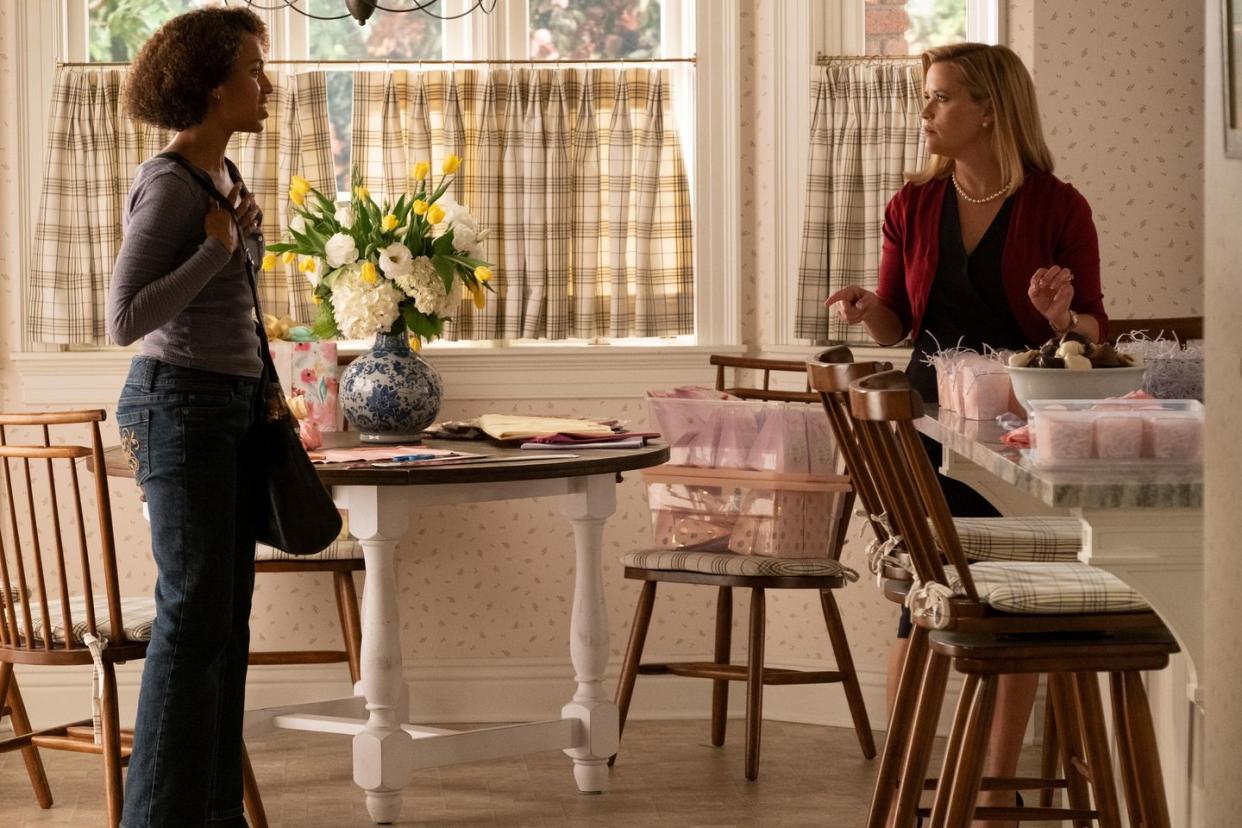
By May, Ng’s earlier book, 2014’s Everything I Never Told You, saw a bidding war that Barer, who represents Ng, attributes to the Hulu series’ success. (While Hulu doesn't release viewership numbers, it has trumpeted big viewership for the series.) The novel was once being eyed as a potential Julia Roberts movie, but those rights had lapsed. A TV production company snatched them up in the wake of Ng’s surging profile—a transaction that encapsulates today’s hearty page-to-screen pipeline.
"There are some writers, maybe newer ones, who have an understanding that intellectual property is hot right now in Hollywood. To be the writer of the book and also the producer of the TV show, where you have some control, is an ideal outcome," says one writer with a novel currently being developed for TV. "Hollywood is traditionally averse to giving authors power over their work, so I had to have a real willingness to walk away from the deal if they weren’t going to offer me a seat at the table—which in my case meant a substantial credit."
Jordan Helman, Hulu’s head of scripted originals, says book adaptations “absolutely” occupy more of his time now than they did when he first joined the operation in 2015. In Helman’s eyes, the streamer “struck gold” with its take on Margaret Atwood’s The Handmaid’s Tale, which launched three weeks after Big Little Lies ended and found alarming resonance amid Donald Trump’s presidency. Both shows returned for additional seasons that stretched beyond the books’ scope.
In an age when crime stories (true or otherwise) have attained prestige, Moriarty appeals to our base instincts while still commanding respect—the sweet spot between airport guilty pleasures and highbrow art. Known for her sudsy accessibility, she introduces affluent protagonists to homicide, deceit, and other plot-driven scandals. Big Little Lies was a juicy character study camouflaged as a whodunit, and Nine Perfect Strangers is an ensemble drama that indicts New Age spiritual fads.
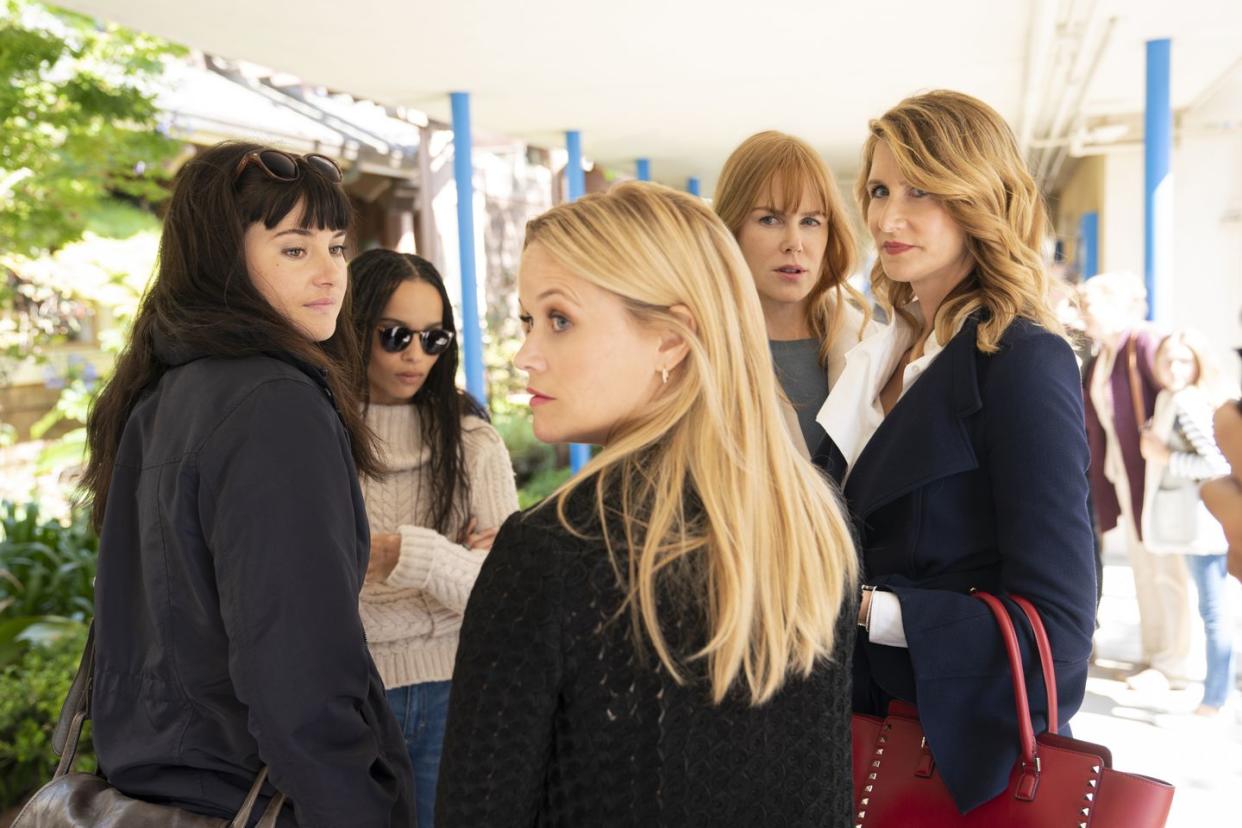
“I signed up Liane [as a client] after reading her first novel, Three Wishes, thinking that it could be successful in all formats—book, film, possibly even stage,” Moriarty’s agent, Fiona Inglis, says. “It was published successfully in book form first, then audio, and then optioned for film by EveryWhere Studios and Netflix. All her books are now under option by large production houses or studios.”
Barer, who also represents Alice Sebold (The Lovely Bones) and Rumaan Alam (Leave the World Behind), estimates the text-to-TV synergy cemented about three years ago, well before COVID-19 shuttered theaters and accelerated changes to our entertainment consumption. Many of the agents and executives Town & Country spoke to for this story agree that the past decade has prompted a boom in literary stalwarts reaching mature audiences while satisfying Hollywood’s thirst for market-tested IP.
Were big-screen smashes like The Martian, Life of Pi, The Da Vinci Code, The Devil Wears Prada, Bridget Jones’s Diary, The Silence of the Lambs, or The Color Purple made today, they’d probably be episodic series. Moviegoing has lost its luster in the United States, supplanted by the immediacy of smaller devices. Just look at the lengthy roster of recent TV adaptations, many originating from zeitgeist-friendly scribes: The Underground Railroad, Bridgerton, The Queen’s Gambit, The Undoing, The Flight Attendant, Firefly Lane, Normal People, Shrill, Killing Eve, Dare Me, Sharp Objects, Alias Grace, The Night Manager. For more proof, consider that Martin Scorsese and Leonardo DiCaprio, arguably the biggest movie star of the last 25 years, have taken their long-gestating rendition of Erik Larson’s The Devil in the White City from Paramount Pictures to Hulu.
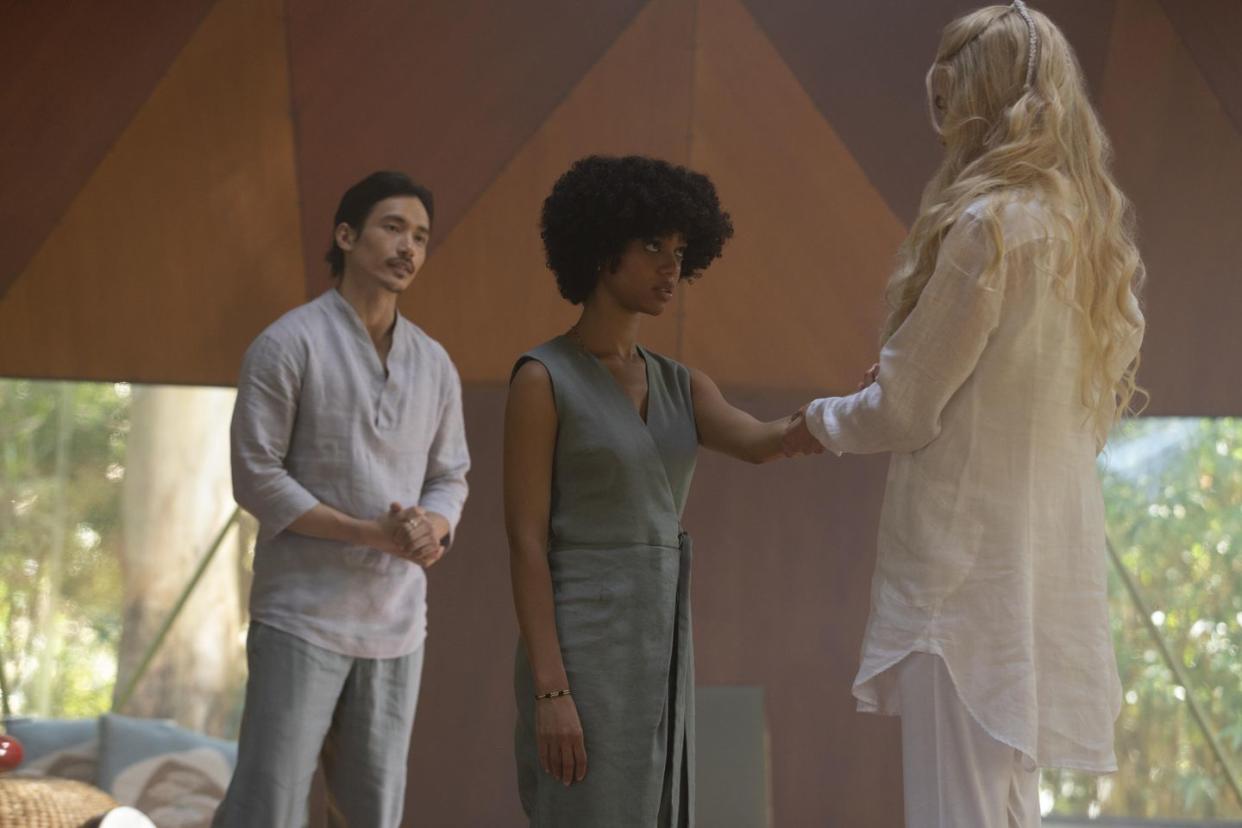
“People say they see Gone Girl as one of the last big bestselling novels that could be made into a big Hollywood movie with that kind of success,” Flynn’s agent, Stephanie Rostan, says, referring to the 2014 phenomenon directed by A-list auteur David Fincher and produced by—wait for it—Witherspoon. Kevin Kwan’s Crazy Rich Asians and E.L. James’ Fifty Shades of Grey might seem to rebut Rostan’s theory, but Kwan and James had already published sequels by the time Warner Bros. and Universal Pictures, respectively, greenlit the movies. Put simply, Asians and Grey constituted Hollywood’s prized possession: franchises, albeit ones without action scenes.
Rights are typically negotiated through publishing firms that work alongside Hollywood’s top agencies to strike deals. A studio, network, production company, or individual can choose to option a book, which provides a limited window of time to develop that project before the rights expire, or purchase full exclusivity at a higher rate. In rare cases, that sum might be extravagant, like the $1.5 million that 20th Century Fox reportedly paid for Gone Girl. The larger the rate, the more money and attention that goes to the author. Entire businesses now exist to connect writers with potential producers, like Conner Literary, founded in 2015 by an erstwhile Fox book scout.
Publicity generated from these deals can boost sales, in turn aiding that person’s future adaptability. “Nothing sells a book better right now than a film or television adaptation,” says Alexandra Machinist, an agent at ICM whose clients include Kwan and Sabaa Tahir (An Ember in the Ashes). But were she negotiating the Crazy Rich Asians adaptation today, she predicts it would land at a streaming service instead of a major studio.
Watch Nine Perfect Strangers Now
Marketing a theatrical movie costs a lot more than marketing a TV show, and streaming executives have infinite content wells to fill. “You don't have the make-or-break opening weekend,” says Elizabeth Gabler, a former Fox chief who oversees a multi-platform Sony Pictures division largely dedicated to adaptations, including a partnership with mega-publisher HarperCollins. “Especially when you look at the female demographic, you're talking about giving a lot more flexibility and chances for success.”
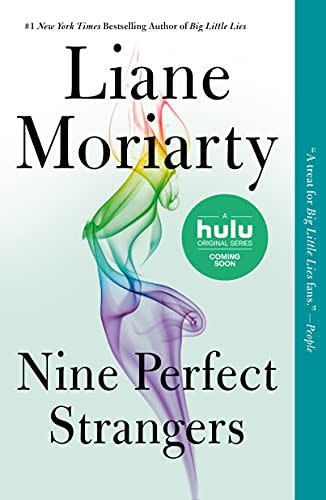
Nine Perfect Strangers
amazon.com
CourtesyPublicists “madly pitch” book clubs like Witherspoon’s in hopes of transforming their authors into the next Moriarty or Stephen King, says Jean Hanff Korelitz, an eight-time novelist who has experienced the adaptation process from all sides. Similarly, Barer calls Moriarty the “model” for mainstream eminence, not unlike John Grisham in the '90s.
Even if she isn’t a household name, Hanff Korelitz has benefited from the advantages of streaming. When her 2009 novel Admission became a film starring Tina Fey and Paul Rudd, Hanff Korelitz says she wasn’t given an opportunity to draft the screenplay. Same for You Should Have Known, which Kidman and Big Little Lies maestro David E. Kelley turned into The Undoing, HBO’s most-watched series of 2020. But with her newest book, The Plot, Hanff Korelitz expects to be part of the adaptation’s writing staff.
There are downsides to this evolution. Some insiders insinuate that more and more literature gets greenlit solely because it might yield a stylish TV show or direct-to-Netflix flick. Furthermore, endless streaming content means fewer titles can truly saturate culture the way that, say, Forrest Gump did in 1994 when it went from little-known novel to Oscar-dominating sensation.
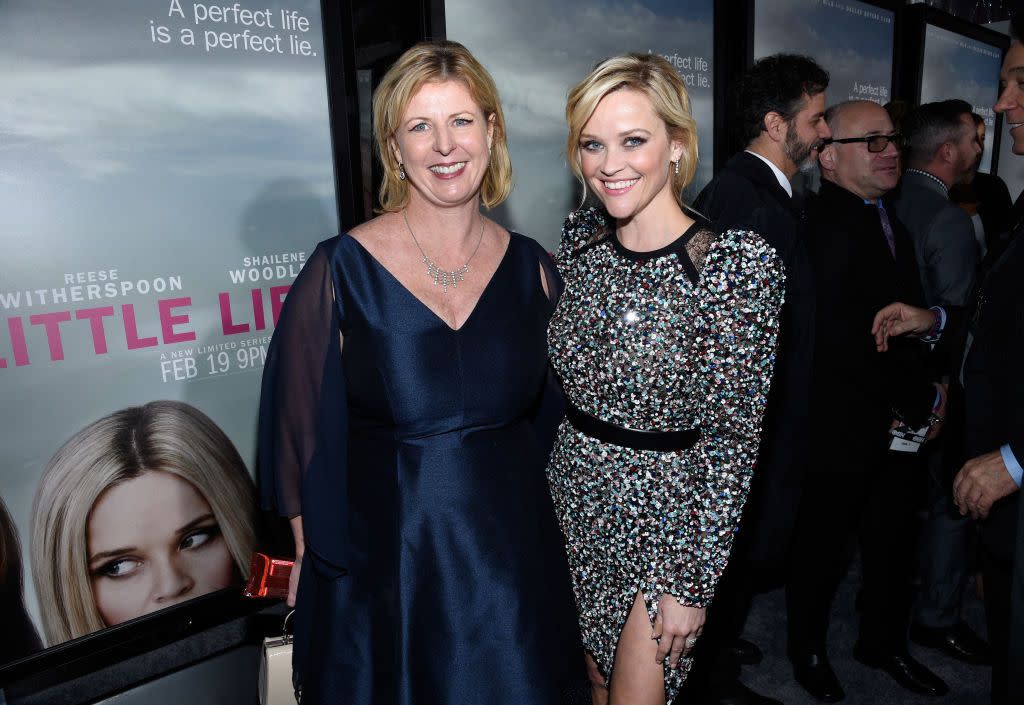
It’s interesting to note that so many roads lead back to Witherspoon, whose shift from conventional movie idol to actor-producer-influencer extraordinaire speaks to the way some contemporary celebrities resemble institutions. Just this month, her company, Hello Sunshine, sold to a yet-unnamed media conglomerate managed by two former Disney executives. Sunshine was valued at a jaw-dropping $900 million, according to The Wall Street Journal. “Reese is a brand; she’s done a really wonderful job in branding herself as a lifestyle,” says Maris Kreizman, a Town & Country contributor and former book editor who hosts the podcast The Maris Review.
Of course, there will still be novels with blockbuster potential, like Delia Owens’ Where the Crawdads Sing, 2020’s top-selling fiction book, slated to hit multiplexes next summer. But insiders are anxious to avoid what happened to The Goldfinch, Donna Tartt’s much-discussed Pulitzer winner that was a critical and commercial dud in movie form. Without a trendy celeb endorsement, that may be tricky. Luckily for Crawdads, it has Reese Witherspoon’s stamp.
You Might Also Like
